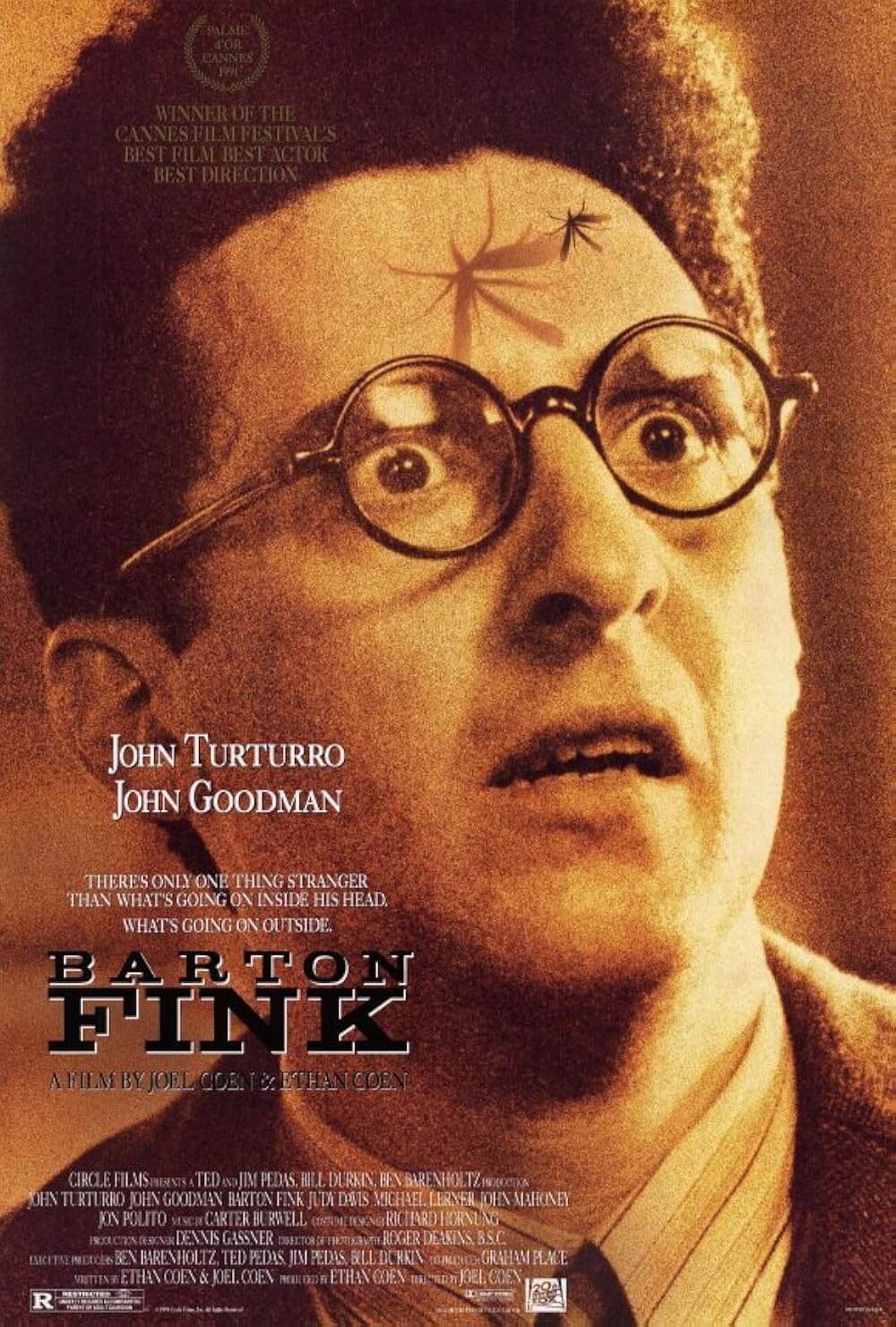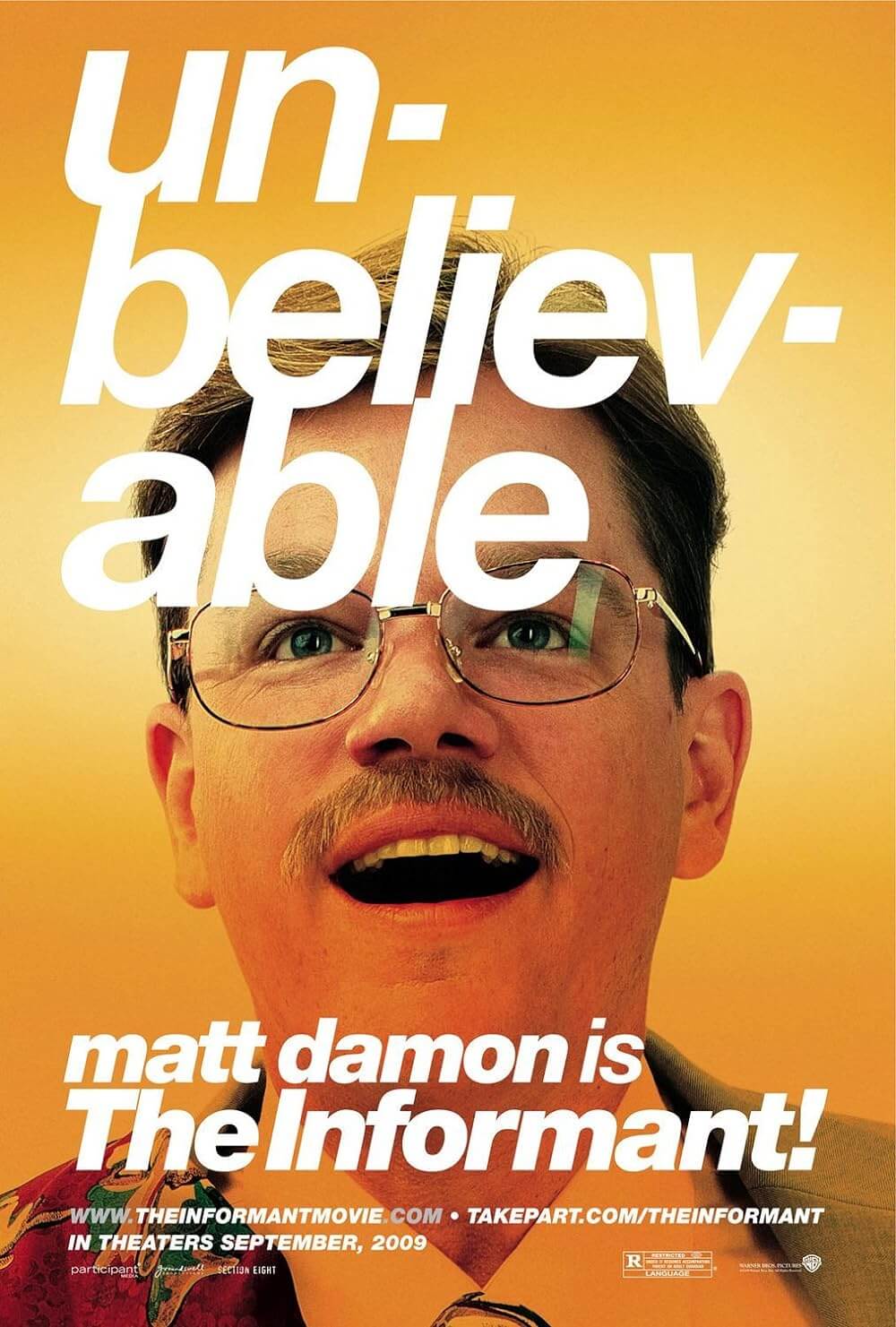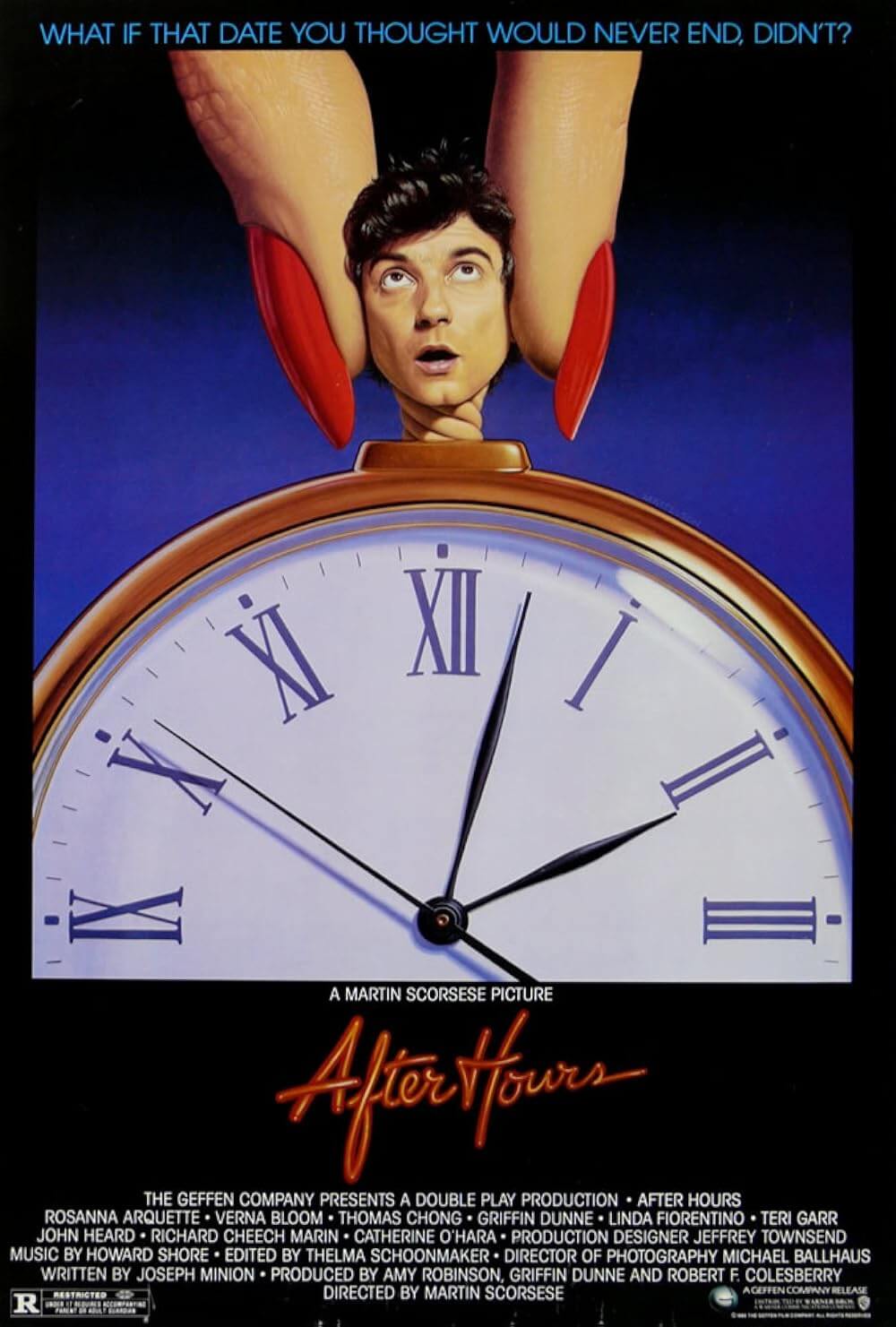Reader's Choice
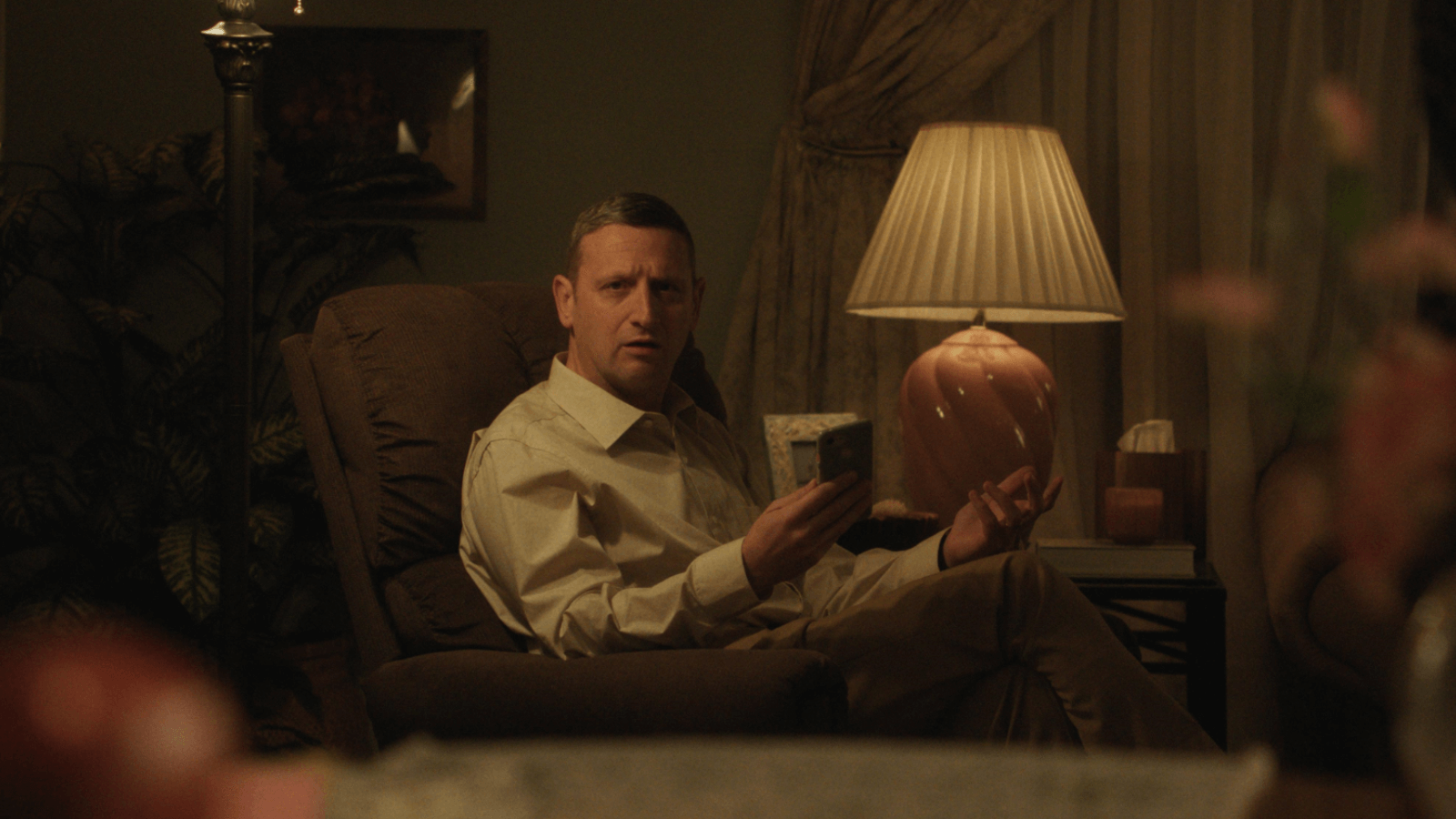
Friendship
By Brian Eggert |
Note: A24 will release Friendship in theaters on May 9, 2025. This film was screened at the Minneapolis St. Paul International Film Festival and originally reviewed on Patreon on April 9, 2025.
Given some failing or peculiarity in my personality, I haven’t formed many lasting relationships with other men. The suggestion of a “guy’s weekend” sounds like an unbearable chore. Camping trips, watching or playing sports, gaming together online, or even just a hangout with an all-male crew—such typical male-bonding rituals register with me as tedious or entirely off-putting. So, with that recognition and second-hand embarrassment, I watched the events unfold in Friendship, an unrelenting comedy that plays like the inverse of I Love You, Man (2009). In a singular performance that crystallizes the frenzied energy of his riotous Netflix shows, Detroiters (2017-2018) and I Think You Should Leave (2019–present), Tim Robinson plays Craig Waterman, a seemingly average person with no substantive male friendships. When Craig begins to buddy up to his new neighbor, a parasitic relationship forms, and the experience brings out the worst, most desperate, competitive, possessive, insecure, and narcissistic aspects of his behavior. It’s hilarious and horrifying.
The trouble begins with a misdelivered package. Craig walks down the street on a winter’s morn to his new neighbor’s house, returning the box left on his doorstep by mistake. Dressed in head-to-toe beige—parka, sweater, and slacks from a clothing store called “Ocean View Dining,” which sounds like a generic male outfitter on par with Lands’ End or Eddie Bauer—Craig is greeted by Austin Carmichael (Paul Rudd). As a weatherman on the evening news, Austin has an enviable life, at least on the surface. Craig admires the way he smokes herbal cigarettes, sings lead vocals in a punk band, doesn’t use a smartphone, and goes on adventures, from foraging mushrooms to sneaking onto the roof of city hall. Craig’s wife, Tami (Kate Mara), a cancer survivor, encourages the bromance. She’s busy running a floral arrangement business from their home, reconnecting with her ex-boyfriend (in a platonic way), and sharing an uncomfortable intimacy with her and Craig’s teenage son, Steven (Jack Dylan Grazer).
Because Craig has no impulse control, and everything he says feels wrong or off somehow, watching him interact with Austin, who invites Craig along on a “couple of good hangs,” goes from funny to painful. He’s so enamored with Austin that his nose bleeds, so desperate for male friendship that he hugs Austin like a child, burying his head in his father’s chest. When Austin introduces Craig to his tight-knit friend group, the evening begins with earnest conversations and descends into faux pas, broken glass, and a sucker punch. (The evening ends with one of Austin’s friends shouting at Craig: “Nice job, you fucking cock!”) Craig attempts to smooth things over, but he apologizes in the weirdest imaginable way, prompting Austin to end the friendship. After his rejection, Craig cannot return to his bland life, developing “habit-forming” apps for his clients and seeing the latest “Marvel” with his family. Instead, he seizes onto his time with Austin and tries to recreate those moments with his family and coworkers to disastrous effect.
Robinson’s comic persona may never get a better showcase. Friendship is one of those singular movies that epitomizes a comedian’s appeal, like Groundhog Day (1993) for Bill Murray or Happy Gilmore (1995) for Adam Sandler. Just as Robinson’s shows often turn his characters’ minor social blunders into surreal, full-blown meltdowns, his knack for playing awkward characters with a chronic refusal to admit they’re wrong shines in writer-director Andrew DeYoung’s hands. A comedy creative with plenty of TV work to his credit, DeYoung acknowledges in the press notes that he drew inspiration from the similarly absurd Tim and Eric Awesome Show, Great Job! and any number of projects by Tim Heidecker and Eric Wareheim. But there’s none of the intentional formal cheapness or tastelessness often found in a Tim and Eric production. Friendship is an absurdist comedy with hints of an art film. Fittingly, A24 picked up the independent project after its premiere at the Toronto International Film Festival last year.
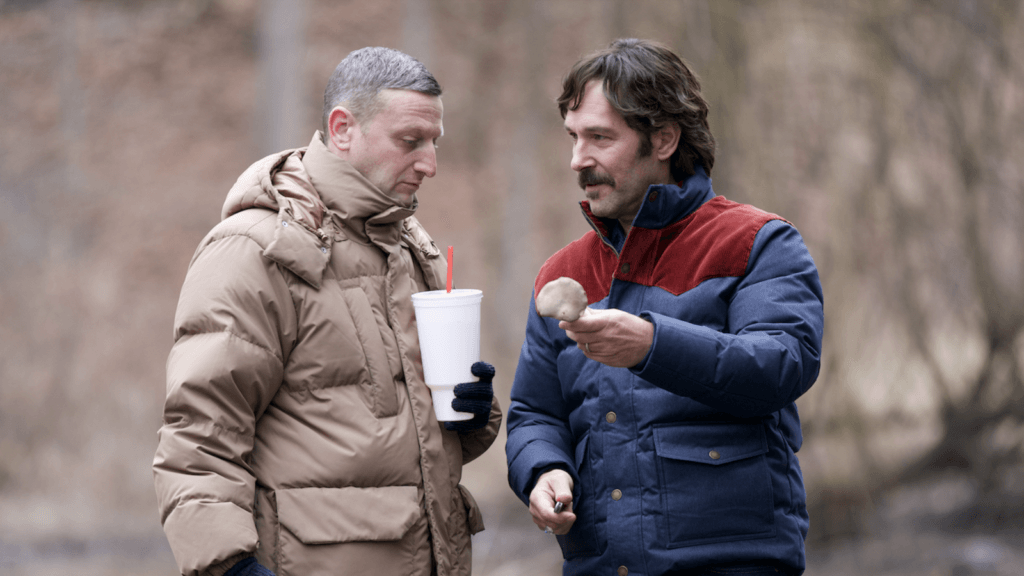
Sharing plenty of DNA with Ben Stiller’s underrated, ahead-of-its-time dark comedy The Cable Guy (1995), DeYoung’s film turns Robinson into a similarly needy, smothering, and ultimately dangerous type. Like Jim Carrey’s character in that movie, Craig overcompensates, making inappropriate leaps that veer into chilling extremes. But around the time Craig wanders into Austin’s house and stumbles upon a pistol, or later wields the gun against his would-be friends, his behavior escalates into Fatal Attraction (1987) level fixation and terror. For their part, Austin and his friends don’t exactly register as innocent victims. And while appearing to have the nice-guy energy characteristic of Rudd’s screen persona, Austin can also be phony and duplicitous. Austin’s mellow, no-bullshit attitude proves to be a well-polished act when the character lands a morning weather gig at his station, adding pressure that leaves cracks in his bogus façade. None of this excuses Craig’s actions, which forces one to wonder how Tami ever fell in love with him.
DeYoung doesn’t adopt the usual bright, generously lit comedy aesthetic for Friendship. Cinematographer Andy Rydzewski conveys the dreary, overcast appearance of New York in winter, while interior scenes rely on natural light and shadows. When Craig takes Tami into some subterranean corridors to simulate a similar adventure with Austin, only for him to lose her, the scene is bathed in red, like a Lynchian nightmare. The visuals underscore the film’s black-as-pitch comedy and occasional surreality, albeit shaped by Craig’s banal worldview. When Craig tries to make friends with a clerk (Billy Bryk) who sells drugs on the side, he spends a hundred dollars to lick a psychedelic toad, only to have the most underwhelming trip ever put to film—a reflection of Craig’s empty identity, rooted in commercial brands and no real belief system. Fittingly, DeYoung’s behind-the-camera talent has done more than broad comedies. For instance, his composer, Keegan DeWitt, scored Mary Harron’s Manson family drama Charlie Says (2018), lending the production an indie vibe.
Friendship is the funniest movie I’ve seen in some time. It goes beyond a portrait of post-pandemic desocialization or the toxicity of some male bonding. DeYoung taps into the corrosive alienation of men who cannot communicate honestly, share intimacies, or have open discussions about their feelings, especially with other men. He also explores the fragile egos of men who must craft an identity to ensure their friend group accepts them. Having written the two lead roles for Robinson and Rudd’s sensibilities, DeYoung has perfectly paired these actors with their skills. But DeYoung also allows them both to go darker than ever before. Although Rudd has been in some grim material (see 2003’s The Shape of Things), Robinson has never given such a warped performance outside of a comedy sketch. Fortunately, Friendship never feels like a bit extended to 90 minutes. It’s a wildly funny and twisted movie that, even while making you laugh until your face hurts, manages to capture the desperation and vulnerability some people feel when making new friends.
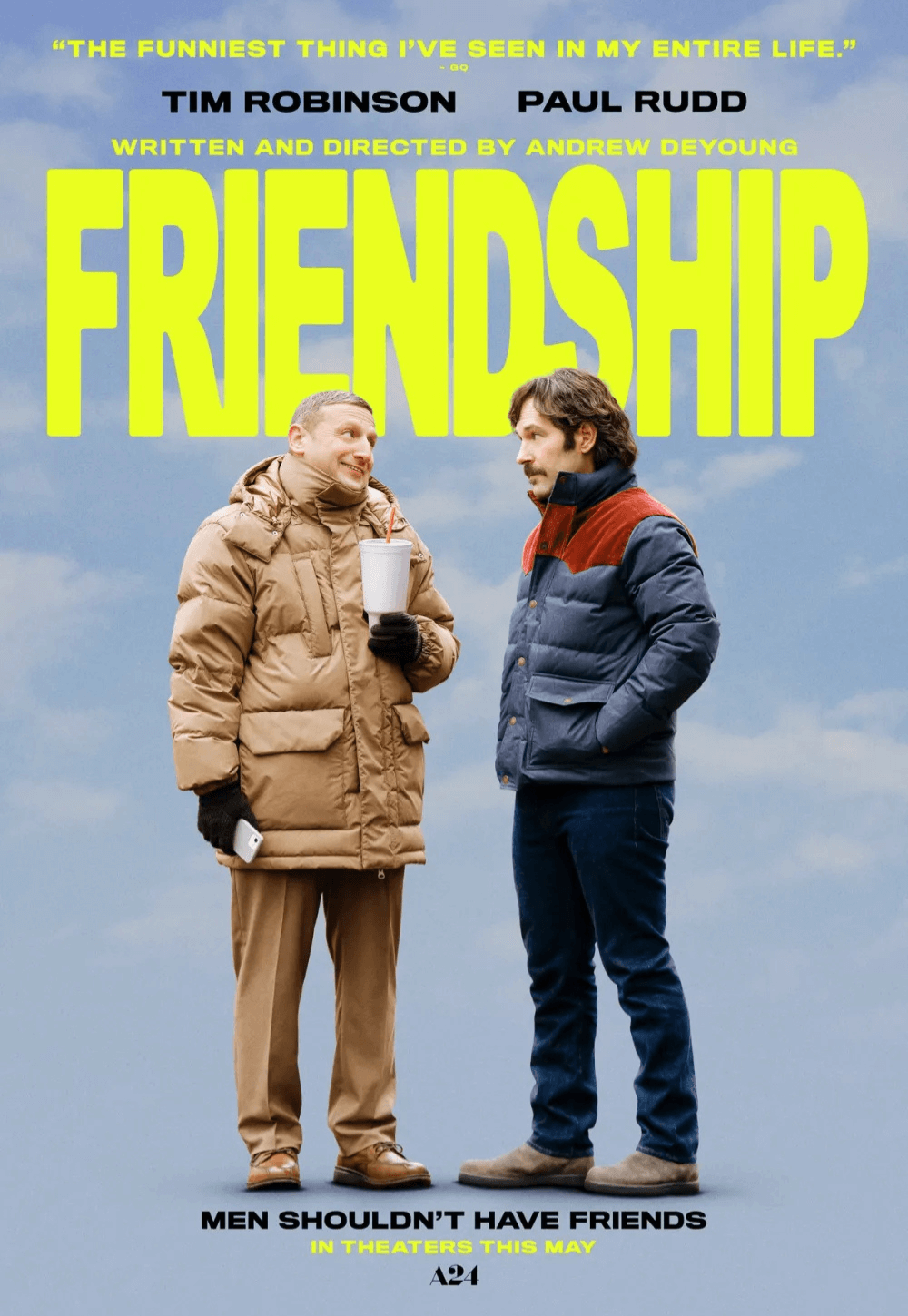
Unlock More from Deep Focus Review
To keep Deep Focus Review independent, I rely on the generous support of readers like you. By joining our Patreon community or making a one-time donation, you’ll help cover site maintenance and research materials so I can focus on creating more movie reviews and critical analysis. Patrons receive early access to reviews and essays, plus a closer connection to a community of fellow film lovers. If you value my work, please consider supporting DFR on Patreon or show your support in other ways.
Thank you for your readership!
Brian Eggert | Critic, Founder
Deep Focus Review


